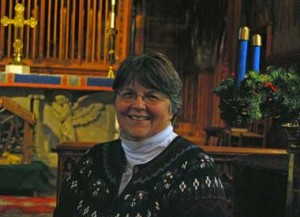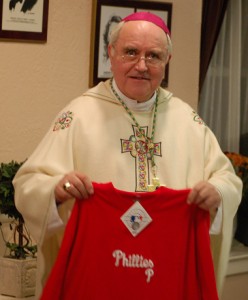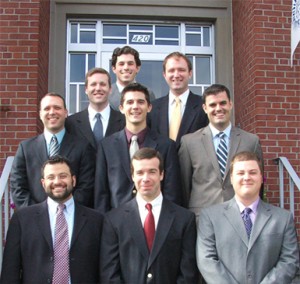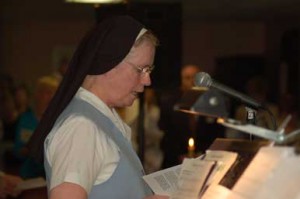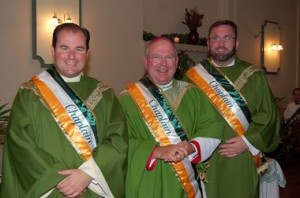Scratch the surface of any one of us Celts, and underneath you might find a pagan.
Many of those who are card-carrying Christians now are descended from an ancient people who looked for the sacred in the natural world. They plumbed the depths of mysticism. Fire was their friend.
Of course, we’ve come a long way since then. Our beliefs have matured. But for those of us whose people came from Ireland, Scotland, Wales and Brittany, the old beliefs—or more likely, the trappings of the old beliefs—still hold some appeal.
If Celtic spirituality speaks to your inner Celt, you might find a comfortable home at St. Thomas’s Church in Whitemarsh, where Celtic worship services are held monthly through March.
Cynthia DeDakis, minister of music at the elegant old Episcopal church at Bethlehem Pike and Church Road, isn’t surprised that Celtic spirituality continues to appeal to many of us.
“The earliest flowering of Christianity in the Celtic countries was very much adapted,” she notes. “The Christians who came in to evangelize where there had been pagan religions before used a lot of the forms and sensibilities of the pagan religions. There’s a close connection with nature and seeing all nature as sacred. I think it appeals to people for a number of reasons, and that’s one. I think Celtic culture is attuned to feeling more connected to the earth. We do try to emphasize that to a certain amount.”
In all the liturgically important respects, the service is Christian. There’s an opening prayer, a reading from Scripture, a homily and a Eucharist. Where does the “Celtic” come in? Many of the prayers come from Celtic sources, some of them ancient, but it’s really more in the atmosphere.
First, there’s the music—near and dear to this classically trained musician, who also plays hammer dulcimer. “Last year, and the first two services this year, we’ve been using harp,” DeDakis says. “I try the best I can to use legitimate Celtic music in the services. People really appreciate and enjoy that style of music. I’ve been working on adapting it somewhat and trying to make it more truly Celtic. It’s a work in progress.”
There’s candlelight. And there are long stretches of silence and reflection. It’s an earthier, less structured occasion of prayer. That’s what the folks at St. Thomas are going for. They’ve been at it since 2005.
“There’s a kind of spirituality that moves into the mystic when you bring in the candles, silence and simple, quiet music,” DeDakis says. “It’s not as demanding in terms of participation. People tend to spread out. We are hoping to build the service and draw people who don’t come to St. Thomas on a regular basis but who are looking to find something like this that feeds them spiritually.”
There’s a Celtic worship service at St. Thomas this Sunday at 5:30—look for it to have a special Christmas theme—and once each month through March. (Consult our calendar.) And if you’d like to go beyond merely attending, DeDakis is on the lookout for traditional musicians who might want to help set the tone. Contact DeDakis by e-mail at cdedakis@stthomaswhitemarsh.org.

